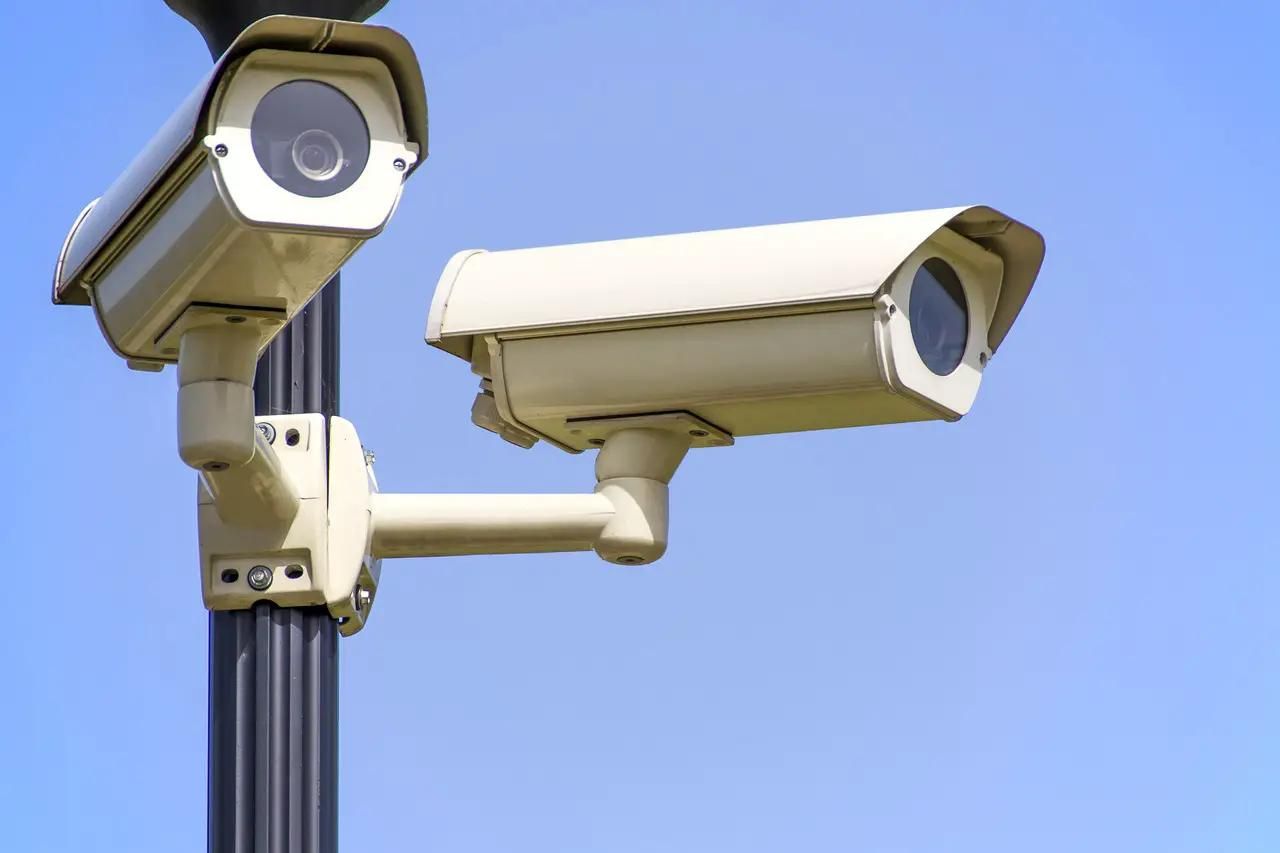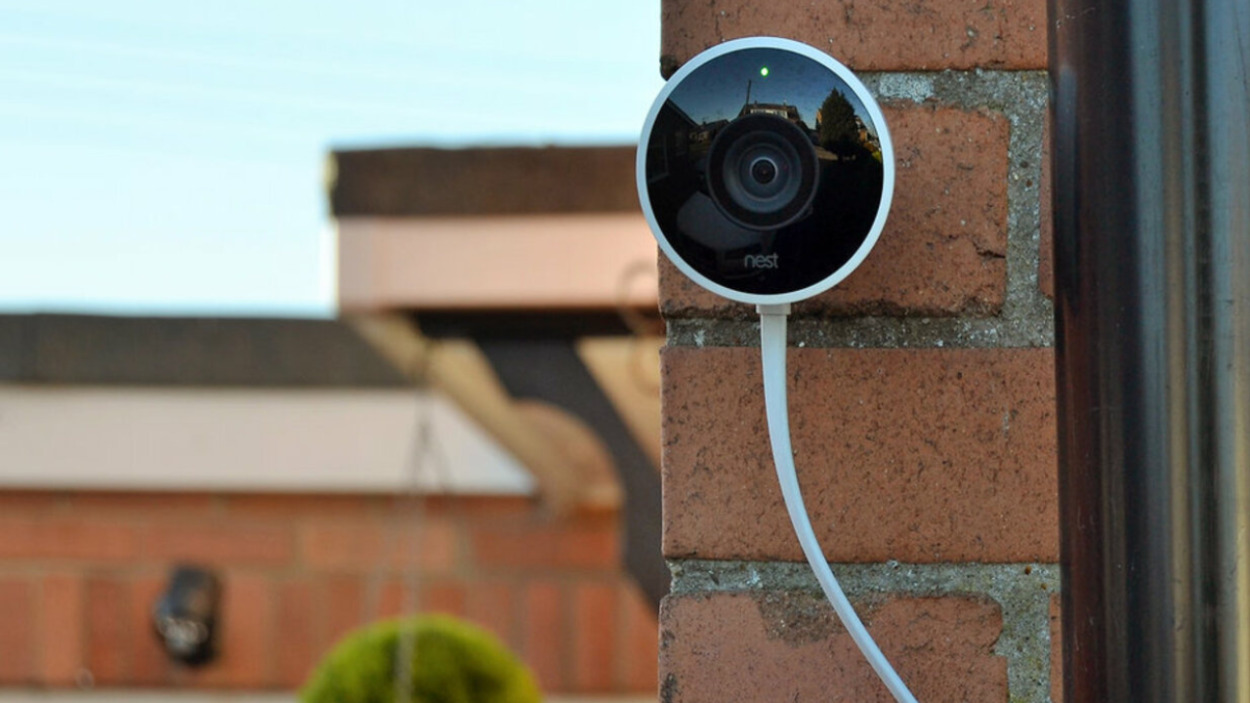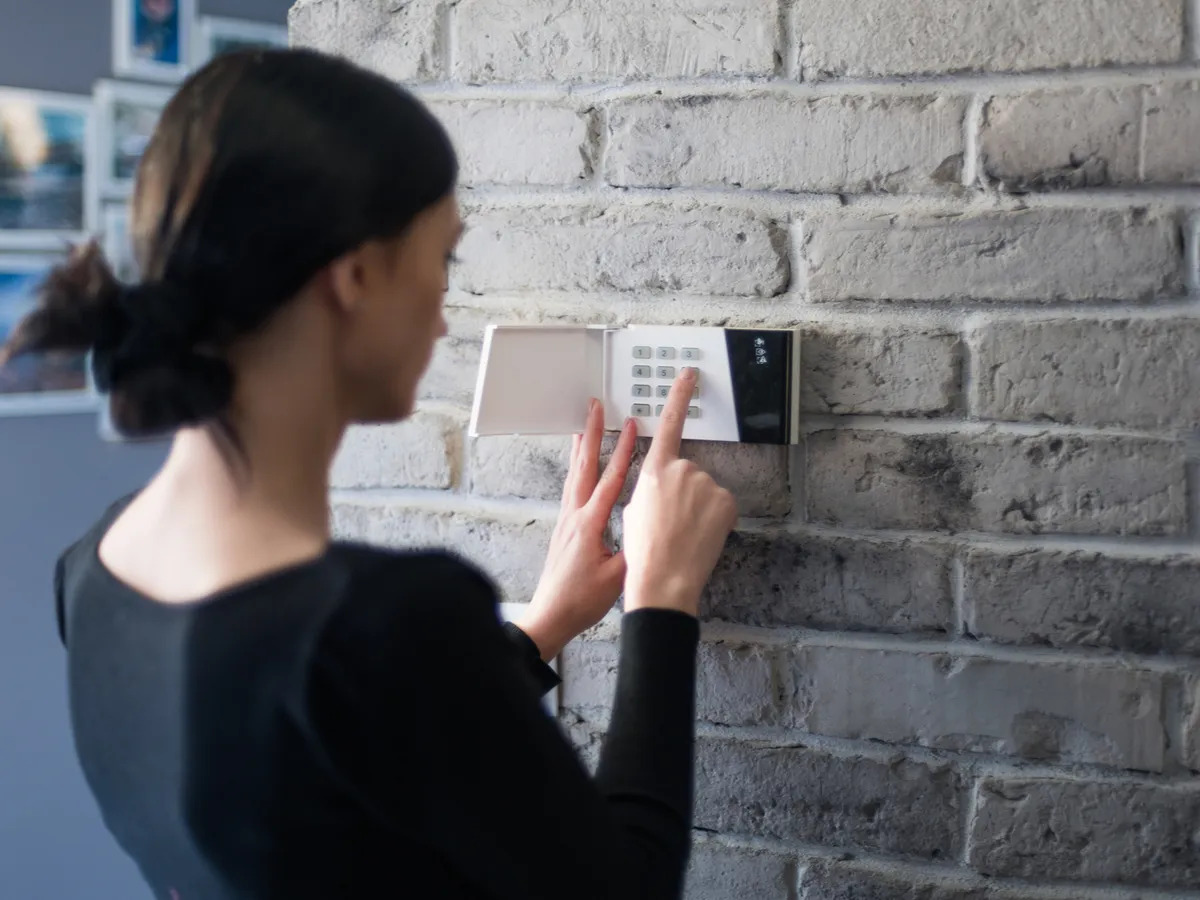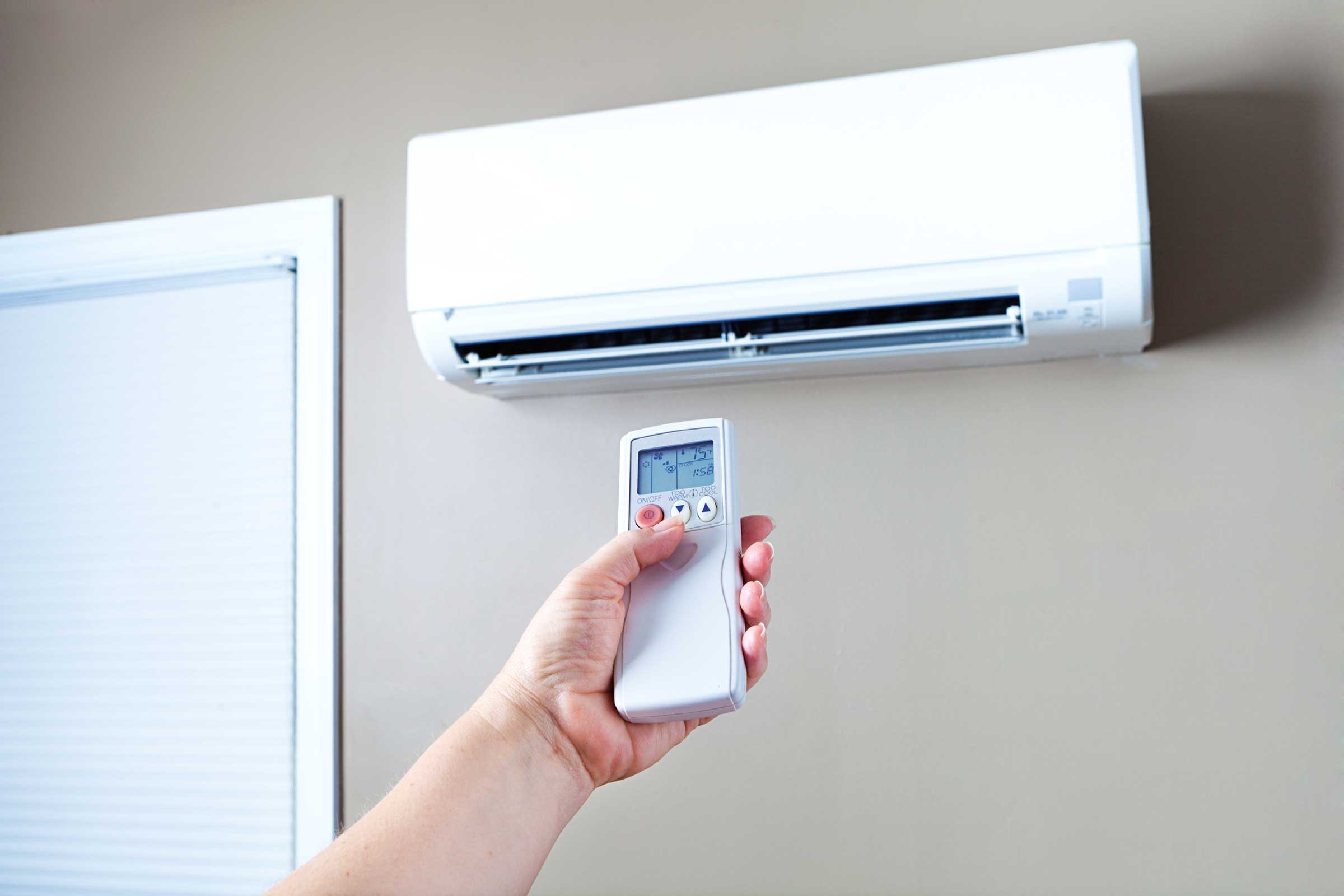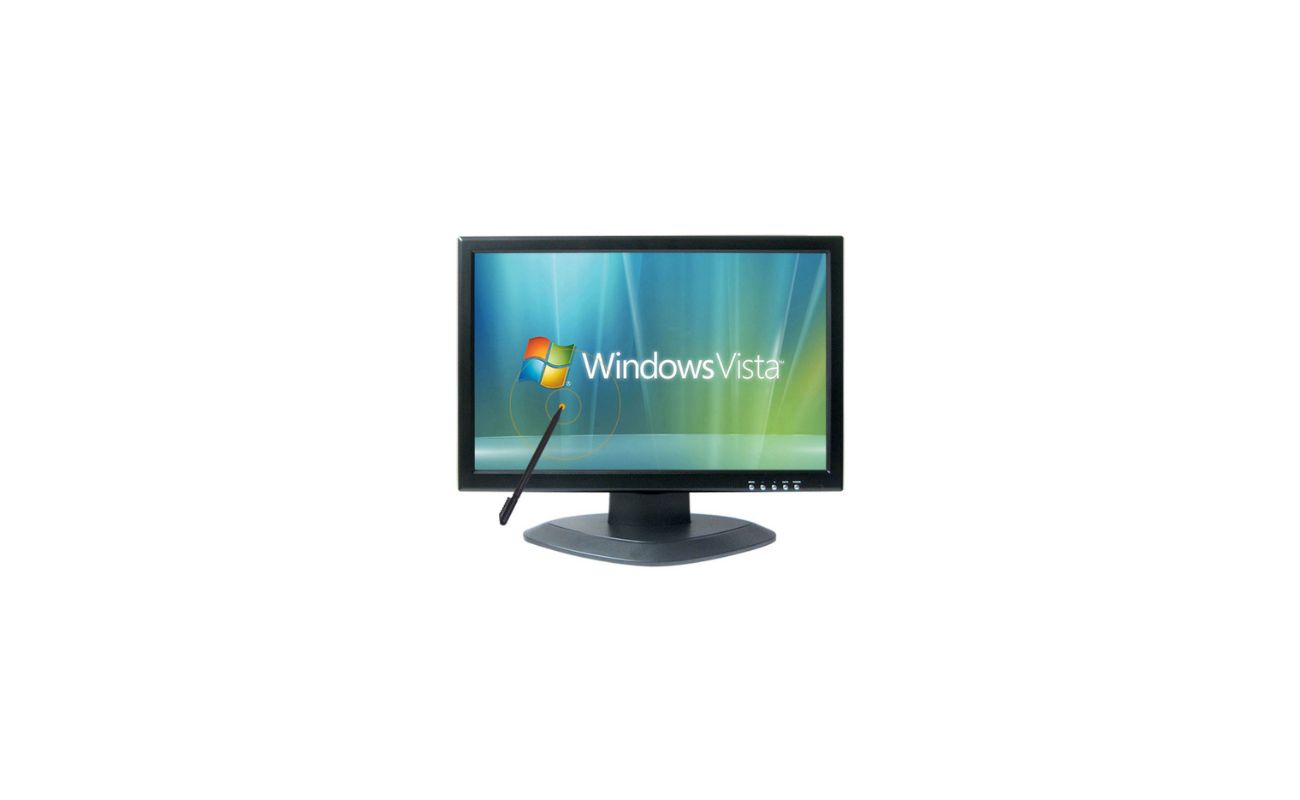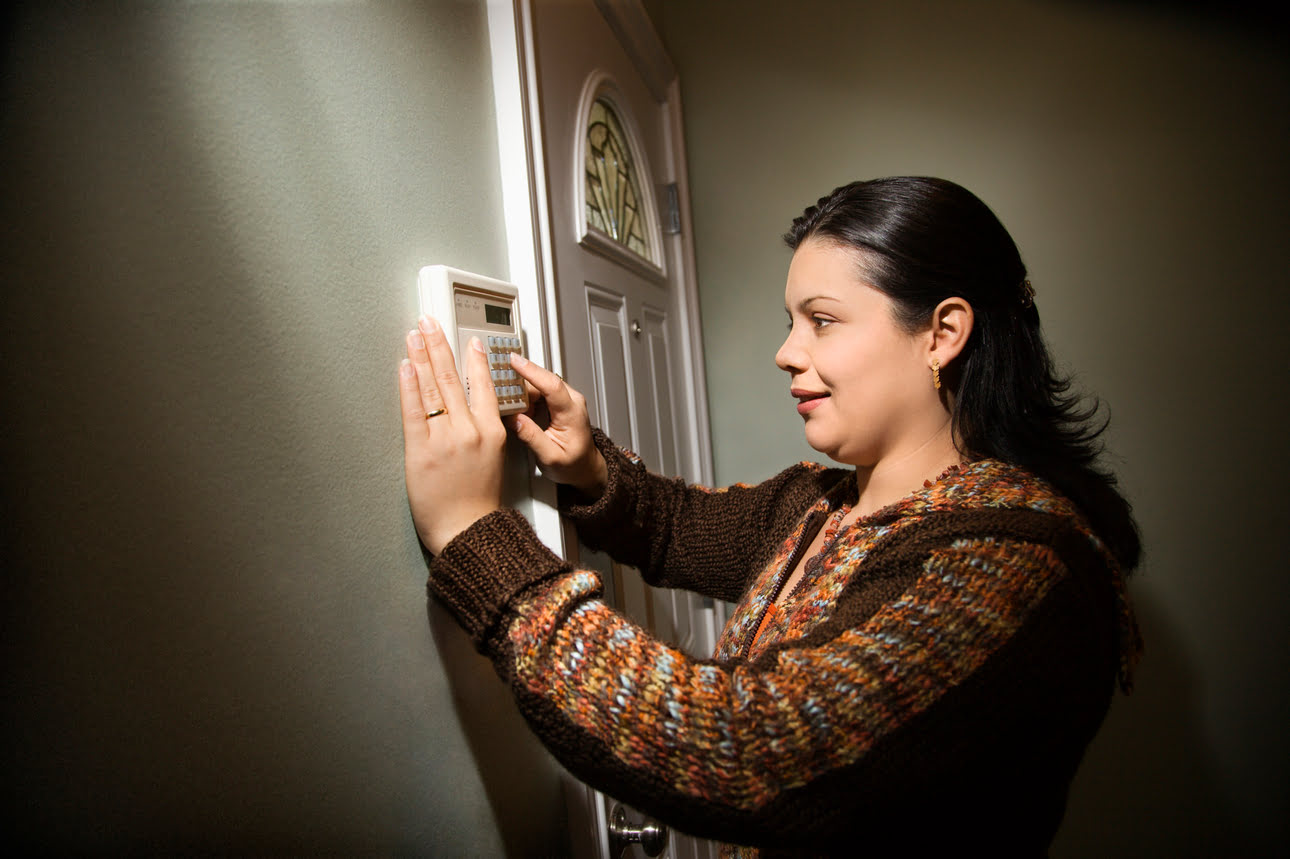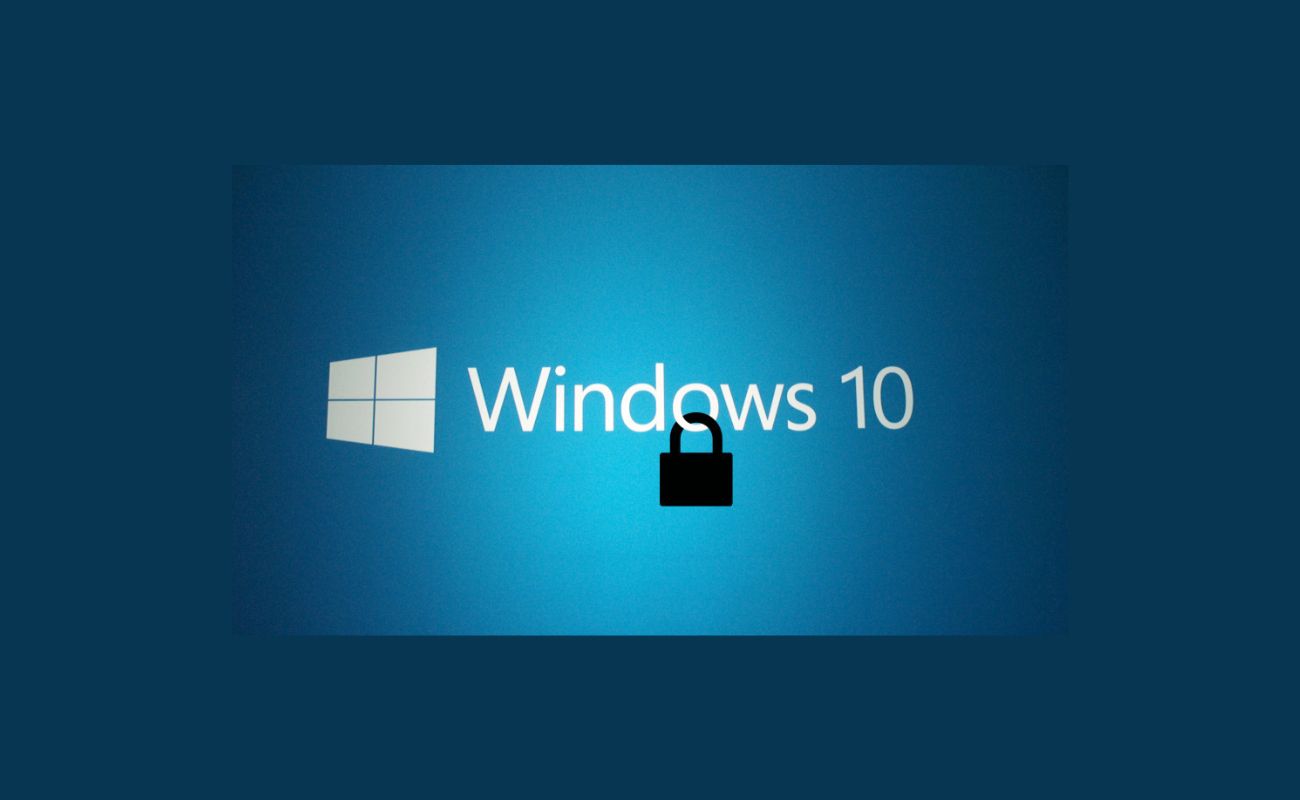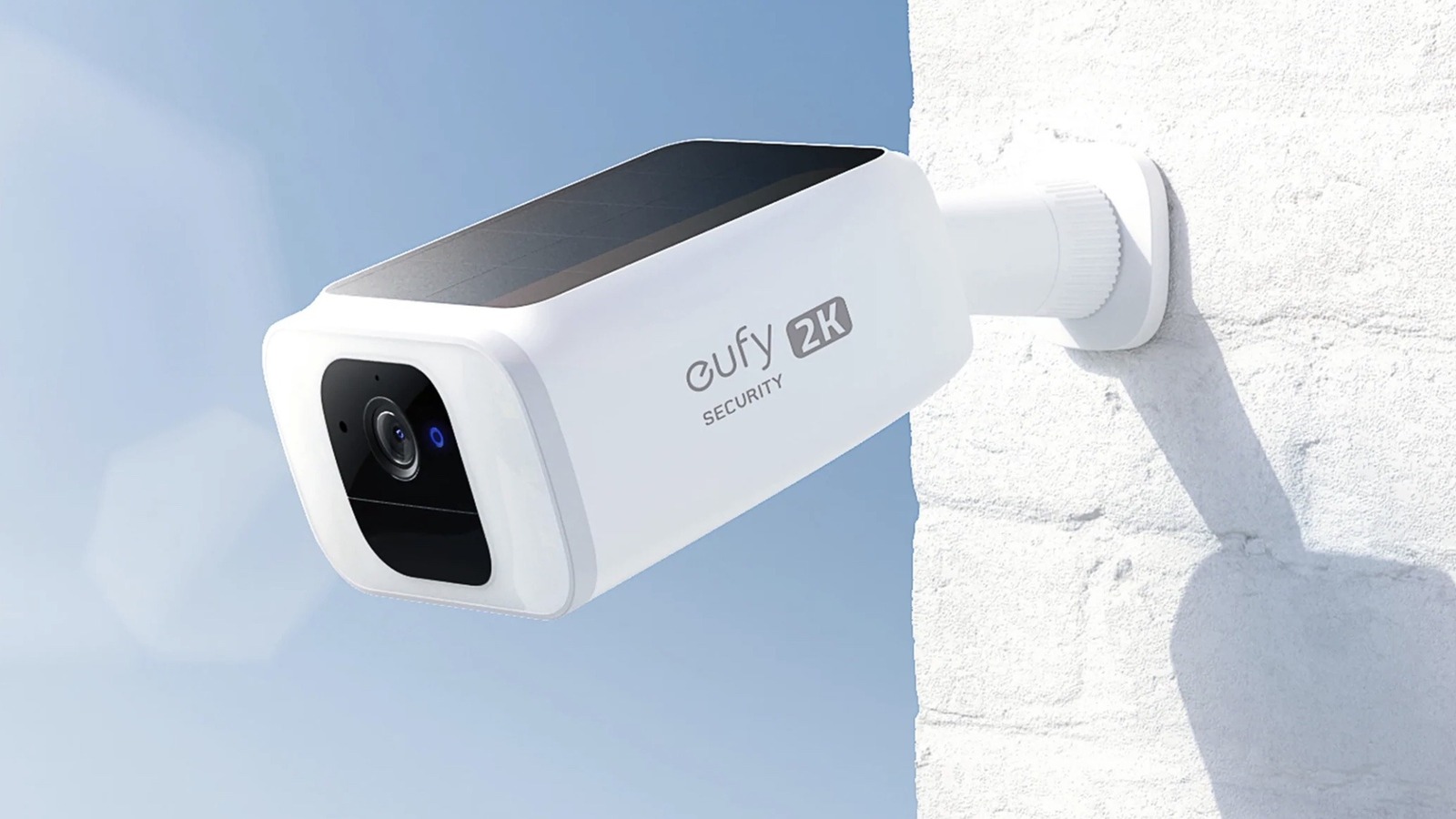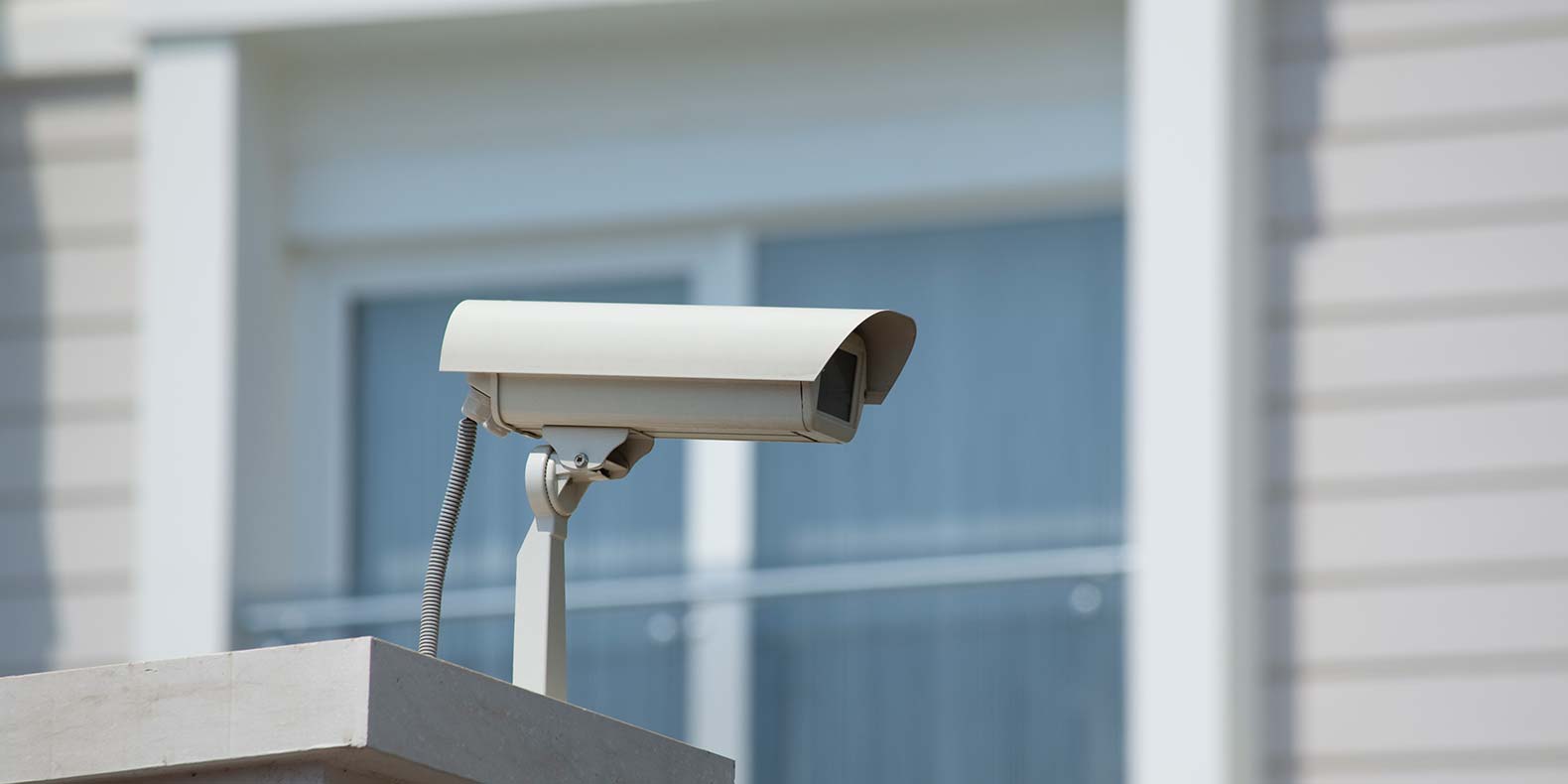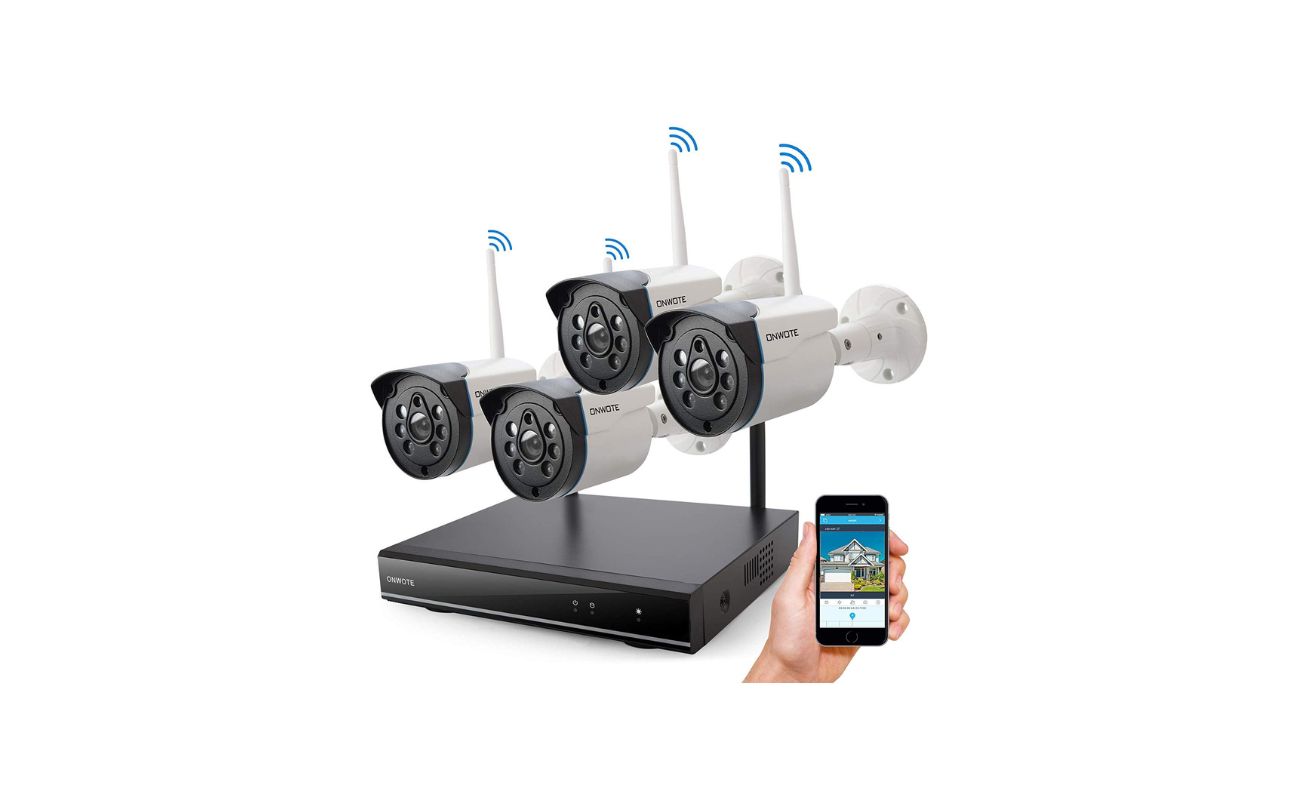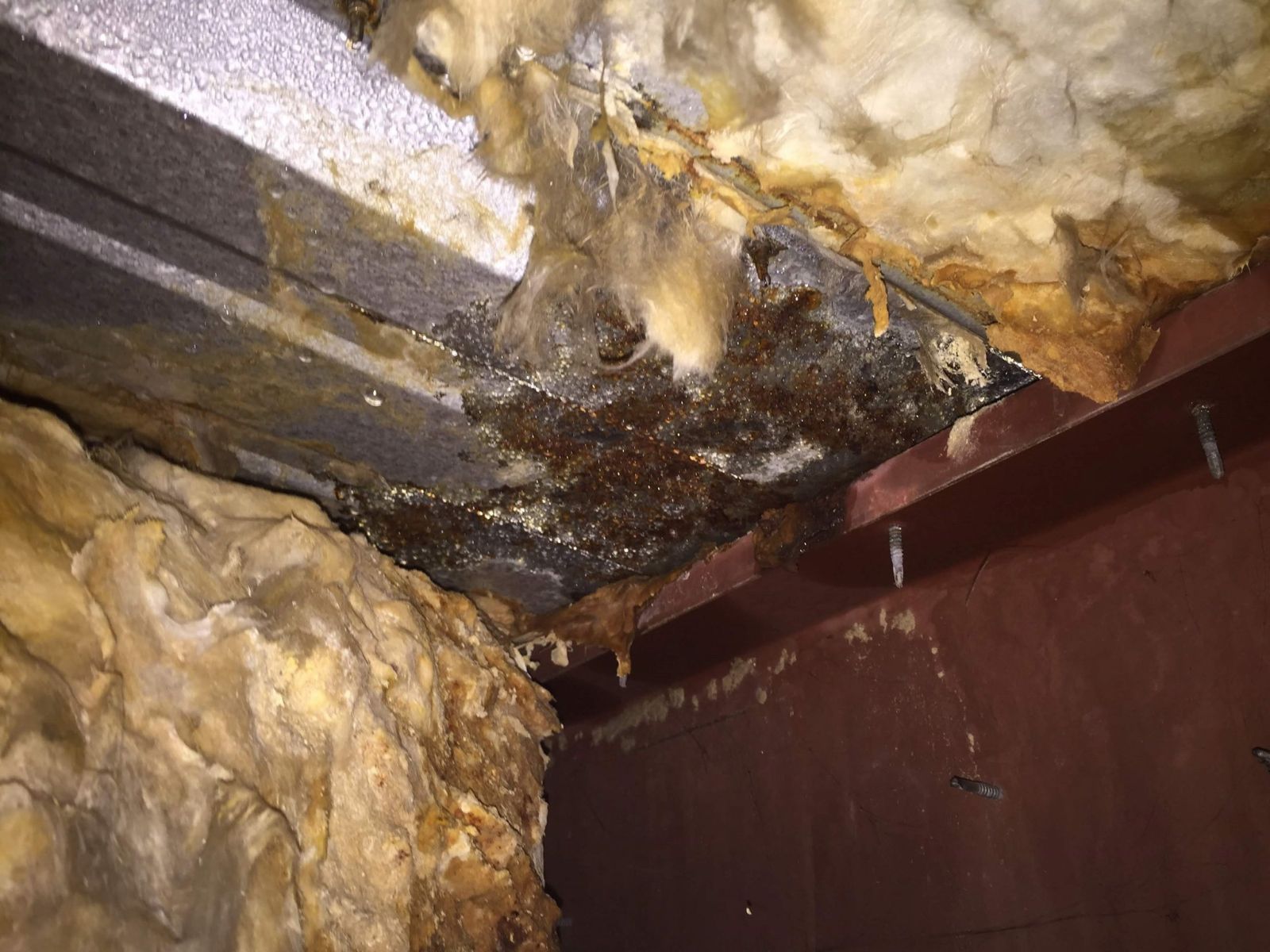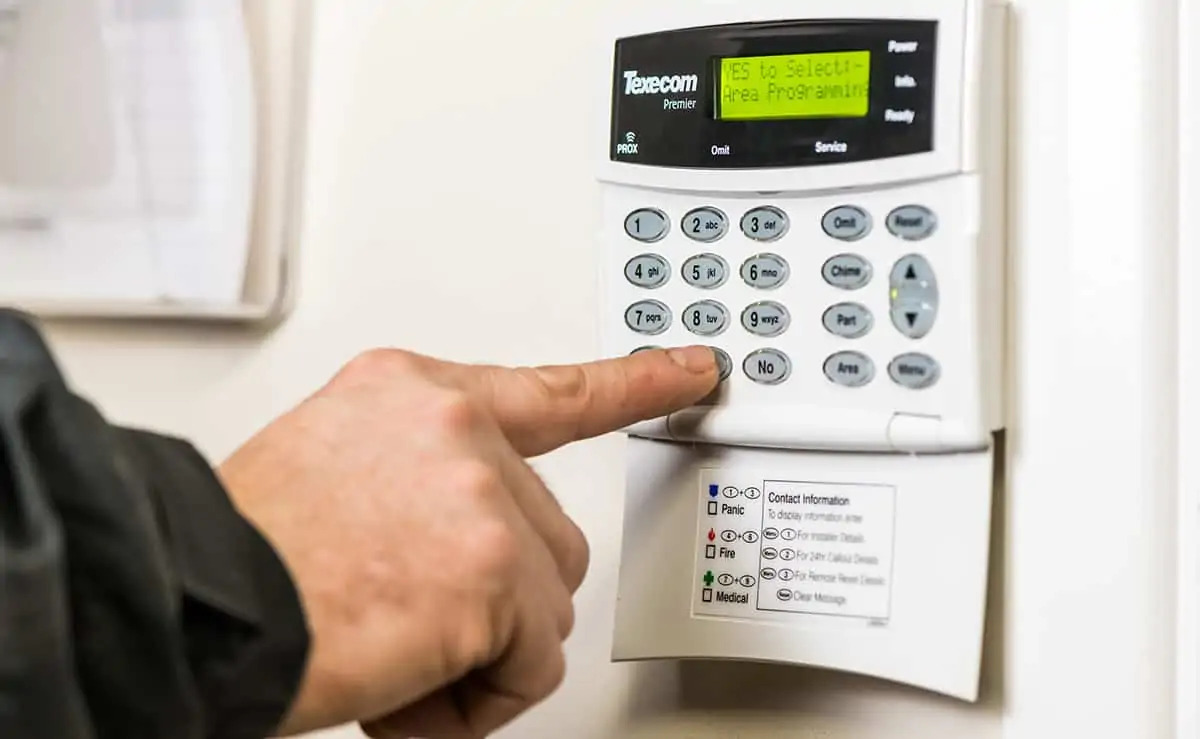Home>Home Security and Surveillance>What Happens To My Home Security Internet If The Internet Gets Turned Off
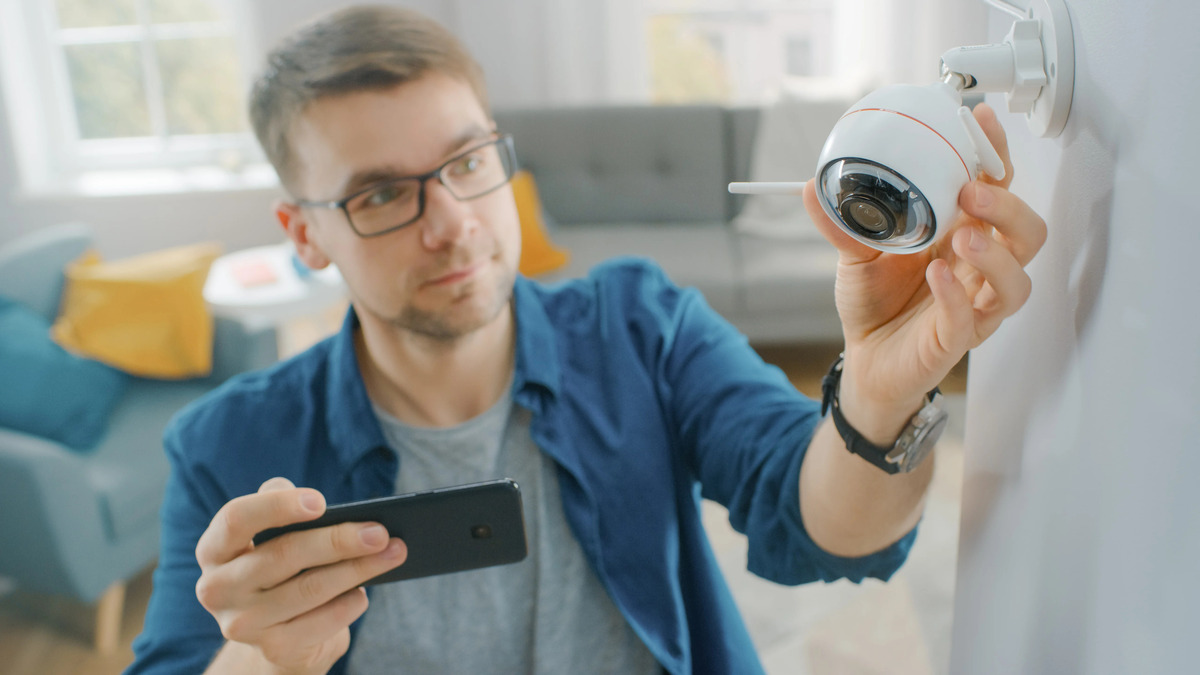

Home Security and Surveillance
What Happens To My Home Security Internet If The Internet Gets Turned Off
Modified: October 21, 2024
Protect your home with Internet-enabled security systems. Find out what happens to your surveillance system if the internet connection is interrupted.
(Many of the links in this article redirect to a specific reviewed product. Your purchase of these products through affiliate links helps to generate commission for Storables.com, at no extra cost. Learn more)
Introduction
Home security and surveillance systems have become increasingly popular in recent years. With advancements in technology, homeowners can now monitor their properties remotely, receive real-time notifications, and control smart devices all through the power of the internet. However, what happens if the internet gets turned off? This article explores the importance of home security internet connectivity and the potential vulnerabilities that arise when it’s disrupted.
With the rise of smart homes and IoT devices, internet connectivity has become an integral part of home security systems. It allows homeowners to access their security cameras, receive alerts, and control their devices from anywhere in the world. This level of convenience and peace of mind is unparalleled, as it enables homeowners to monitor their properties even when they are miles away.
However, the reliance on internet connectivity for home security also brings potential vulnerabilities. In the event of an internet outage or malicious interference, homeowners may find themselves facing a potential security breach.
Whether it’s a power outage, a faulty internet connection, or deliberate tampering, any disruption to the internet can impact the overall effectiveness of home security systems. It’s important for homeowners to be aware of these vulnerabilities and take appropriate measures to minimize any potential risks.
In the following sections, we will delve into the various impacts that can occur when the internet gets turned off in relation to home security systems. We will explore the disabling of remote monitoring capabilities, the loss of real-time notifications, the inability to control smart devices, and the lack of access to footage and data.
Key Takeaways:
- When the internet goes down, home security systems may lose remote monitoring, real-time notifications, and smart device control. Homeowners can prepare by considering backup power, local storage, and alternative communication methods.
- Internet disruptions can impact home security, but homeowners can mitigate the effects by exploring local control options, backup power supplies, and alternative communication channels. It’s important to be prepared for potential vulnerabilities.
Importance of Home Security Internet
In today’s interconnected world, the internet has become an essential component of home security systems. It plays a crucial role in enabling homeowners to monitor their properties, receive real-time notifications, and control various devices remotely. Here are some key reasons why internet connectivity is important for home security:
- Remote Monitoring: Internet connectivity allows homeowners to remotely access their security cameras and monitor their properties from anywhere. This capability provides a sense of security and peace of mind, especially when homeowners are away on vacation or at work.
- Real-Time Notifications: With an internet-connected security system, homeowners can receive instant alerts and notifications on their smartphones or other devices. Whether it’s a motion detection, a door/window breach, or a fire alarm, timely alerts allow homeowners to take immediate action or alert authorities, minimizing the potential for damages or threats.
- Smart Device Control: Many home security systems are integrated with smart devices such as smart locks, smart thermostats, and smart lighting. Internet connectivity enables homeowners to control these devices remotely. For example, if someone forgets to lock the door, they can do so with a tap on their phone.
- Cloud Storage and Backup: Internet-connected security systems often offer cloud storage, allowing homeowners to store and access recorded footage remotely. This feature provides peace of mind as footage can be retrieved even if the physical storage device is damaged or stolen.
- Integration with Home Automation: Internet connectivity allows for seamless integration between home security systems and other smart home devices. This integration enables homeowners to create customized automation scenarios, such as turning on the lights and adjusting the temperature when the security system is armed or disarmed.
The importance of home security internet connectivity cannot be overstated. It not only provides convenience and ease of use but also enhances the effectiveness of home security systems. However, it’s crucial to be aware of the vulnerabilities that can arise when the internet gets turned off or disrupted. The next sections will discuss the potential impacts of internet disruptions on home security systems and how they can be addressed.
Potential Vulnerabilities
While home security internet connectivity offers numerous benefits, it also introduces potential vulnerabilities that homeowners should be aware of. Here are some of the main vulnerabilities that can arise when the internet gets turned off:
- Loss of Remote Accessibility: One of the primary vulnerabilities is the loss of remote accessibility. Without an internet connection, homeowners will no longer be able to access their security cameras or control their devices remotely. This can be problematic for those who rely heavily on remote monitoring to keep an eye on their property.
- Limited Communication: Many modern home security systems use the internet to communicate with monitoring centers and send alerts. When the internet is down, these communication channels are disrupted, potentially impeding the system’s ability to alert authorities or receive emergency assistance.
- Disrupted Alarm Systems: Internet outages can also affect the functioning of alarm systems. While some security systems have cellular or backup connections, others may rely solely on internet connectivity. If the internet is turned off, the alarm system may be compromised or fail to function properly, rendering it unable to alert homeowners or scare off potential intruders.
- Privacy Risks: Home security systems that rely heavily on internet connectivity may store sensitive data in the cloud or on remote servers. If the internet connection is disrupted, there is a risk that this data could be compromised or accessed by unauthorized individuals.
- Dependency on Power: Internet disruptions often go hand in hand with power outages. In such situations, home security systems that rely on electricity may lose their functionality altogether, leaving homeowners vulnerable to potential threats without any means of protection.
It’s important to note that while these vulnerabilities exist, they do not necessarily mean that your home security system becomes completely ineffective when the internet gets turned off. Many security systems have built-in safeguards and backup options to mitigate these risks. The following sections will explore the specific impacts that can occur when the internet is interrupted and how homeowners can address these challenges.
Impact on Security Systems
When the internet gets turned off, it can have a significant impact on the functionality and effectiveness of home security systems. Here are some of the key areas that can be affected:
- Disabling of Remote Monitoring: Internet connectivity is essential for remote monitoring capabilities. Without an internet connection, homeowners will no longer be able to access their security cameras, view live feeds, or review recorded footage remotely. This can leave homeowners feeling disconnected from their home security and unable to monitor their property when they are away.
- Loss of Real-Time Notifications: Internet disruptions can interrupt the communication between home security systems and the homeowners’ smartphones or other devices. As a result, homeowners may no longer receive real-time notifications and alerts when there is suspicious activity or a security breach. This lack of timely information can hinder their ability to respond promptly and take necessary actions.
- Inability to Control Smart Devices: Many home security systems are integrated with smart devices that can be controlled remotely. However, without an internet connection, homeowners will lose the ability to control these devices, such as locking or unlocking doors, adjusting thermostats, or turning on/off lights. This can impact the convenience and automation aspects of their home security system.
- Offline Access to Footage and Data: Internet-connected security systems often offer cloud storage or remote access to recorded footage and data. When the internet is turned off, homeowners may lose access to this stored information. This can be problematic, especially if they need to retrieve footage for investigative purposes or provide evidence to law enforcement.
It’s important for homeowners to be aware of these potential impacts and take proactive measures to address them. Here are a few tips to consider:
- Backup Power Supply: Install a backup power supply such as a battery or generator to ensure that your home security system remains operational during power outages.
- Local Storage Options: Consider using local storage options, such as DVRs or NVRs, to store footage and data. This way, even if the internet is down, you can still access recorded information directly from these devices.
- Cellular Backup or Dual-Path Communication: Opt for a security system that offers cellular backup or dual-path communication. This ensures that your system can stay connected to monitoring centers and send alerts even if the internet connection is lost.
- Regular System Maintenance: Ensure that your home security system is regularly maintained and updated to prevent vulnerabilities and ensure its optimal performance. This includes keeping software and firmware up to date and checking that all hardware components are functioning properly.
By implementing these measures, homeowners can mitigate the impact of internet disruptions on their home security systems and ensure that their properties remain protected even when the internet is unavailable.
Disabling of Remote Monitoring
One of the key impacts of the internet being turned off is the disabling of remote monitoring capabilities for home security systems. Remote monitoring allows homeowners to access their security cameras, view live feeds, and review recorded footage from anywhere in the world. When the internet connection is disrupted, this vital functionality becomes unavailable, leaving homeowners feeling disconnected from their home security system.
Remote monitoring provides a sense of security and peace of mind, particularly for individuals who travel frequently or are away from home for extended periods. It allows them to keep an eye on their property and loved ones, even when they are not physically present. Whether it’s checking in on children, monitoring the delivery of packages, or ensuring that the home is secure, remote monitoring offers convenience and reassurance.
Without an internet connection, homeowners lose the ability to remotely access their security cameras. This means they are unable to view live feeds or check the status of their property in real-time. They become reliant solely on local monitoring, such as surveillance monitors within the premises or standalone recording devices.
Additionally, the loss of remote monitoring means homeowners can no longer review recorded footage remotely. Most modern home security systems store recorded footage on the cloud or on remote servers. This allows homeowners to access and review footage from their smartphones, tablets, or computers. However, when the internet is off, this access becomes impossible.
While the temporary loss of remote monitoring capabilities may be inconvenient, it doesn’t render the entire home security system useless. Homeowners can still rely on other components of their security system, such as alarms, sensors, and local monitoring. These components continue to function independently of the internet connection and provide a level of protection.
To minimize the impact of internet disruptions and maintain some level of remote monitoring, homeowners can consider the following:
- Secondary Internet Connection: Invest in a secondary internet connection, such as a backup broadband connection or a mobile hotspot. This secondary connection can serve as a backup in case the primary internet connection goes down, ensuring continuous access to remote monitoring capabilities.
- Local Viewing Options: Set up surveillance monitors within your home that allow local viewing of camera feeds. This way, even if the internet is off, you can still have visual access to the live camera feeds and monitor your property from inside your home.
- Consider Cellular-Enabled Cameras: Cellular-enabled surveillance cameras use cellular networks instead of relying solely on Wi-Fi. This enables homeowners to continue accessing live feeds and recorded footage even if the internet connection is disrupted.
- Automated Local Recording: Configure your security cameras to automatically record and store footage locally on SD cards or external hard drives. This way, even during an internet outage, the cameras will continue to capture and store footage that can be accessed later.
By implementing these measures, homeowners can minimize the impact of internet disruptions on their remote monitoring capabilities and maintain a level of control over their home security system even when the internet is turned off.
Consider investing in a backup cellular or battery-powered internet connection for your home security system. This will ensure that your system remains operational even if the main internet connection gets turned off.
Loss of Real-Time Notifications
When the internet gets turned off, one of the significant impacts on home security systems is the loss of real-time notifications. Real-time notifications play a crucial role in alerting homeowners about potential security breaches, suspicious activities, or emergency situations. They provide immediate information and allow homeowners to take prompt action to protect their property and loved ones.
Internet-connected security systems rely on a stable internet connection to communicate and send real-time notifications to homeowners’ smartphones, tablets, or other devices. These notifications are typically triggered by events such as motion detection, door/window breaches, or alarm activations. When the internet connection is disrupted, the communication channel for these notifications is interrupted, resulting in a loss of real-time updates.
Without real-time notifications, homeowners may not be aware of security incidents that occur on their property until they physically return home or manually check their security system. This delay in receiving critical information can significantly impact their ability to respond effectively and take appropriate actions.
Loss of real-time notifications can leave homeowners vulnerable to various risks. For example, if a burglar tries to break into the house, the absence of an immediate alert may prevent homeowners from calling the authorities or taking precautionary measures. Similarly, in the event of a fire or a medical emergency, real-time notifications are essential for alerting homeowners to the situation and allowing them to seek help as quickly as possible.
While the loss of real-time notifications during an internet outage is a significant downside, there are steps homeowners can take to mitigate this impact:
- Backup Communication Channels: Consider security systems that offer backup communication options, such as cellular connectivity or dual-path communication. These systems can automatically switch to alternative communication methods when the internet connection is lost, ensuring that real-time notifications are still delivered.
- SMS or Phone Call Notifications: Some security systems provide the option to receive notifications via SMS text messages or phone calls in addition to app notifications. By enabling these alternative notification methods, homeowners can still receive important alerts even when the internet is down.
- Local Alarm Systems: Install local alarm systems that can sound audible alerts within the premises in the event of a security breach or emergency. These alarms provide an immediate local alert even if the internet connection is disrupted, alerting homeowners and potentially deterring intruders.
- Neighborhood Watch or Security Service: Consider participating in a neighborhood watch program or subscribing to a professional security service that can provide additional eyes on your property and alert you to any suspicious activities during an internet outage.
It’s important for homeowners to assess their specific security needs and choose a solution that addresses the potential loss of real-time notifications during internet disruptions. By implementing alternative communication methods and additional security measures, homeowners can minimize the impact of the loss of real-time notifications and maintain a level of awareness and responsiveness even when the internet is turned off.
Inability to Control Smart Devices
With the increasing trend of smart homes and IoT devices, many home security systems are integrated with smart devices such as smart locks, smart thermostats, and smart lighting. These devices offer added convenience, energy efficiency, and flexibility for homeowners. However, when the internet gets turned off, the ability to control these smart devices remotely is compromised, impacting the overall functionality of the home security system.
Internet connectivity is crucial for controlling smart devices through home security systems. It allows homeowners to remotely lock or unlock doors, adjust thermostats, turn on or off lights, and perform various other functions from anywhere using their smartphones or other connected devices. This level of control enhances the convenience and automation aspects of home security.
When the internet connection is disrupted, homeowners lose the ability to control their smart devices remotely. This means they cannot adjust temperature settings, schedule lighting, or perform other actions that contribute to energy efficiency and home automation. It can be particularly inconvenient if someone forgets to lock the door or wants to check if appliances have been turned off while away from home.
While the inability to control smart devices remotely can be frustrating, it’s important to note that these devices usually have alternative control methods when internet connectivity is lost:
- Local Control: Most smart devices still offer local control options, such as physical buttons or switches, even when the internet is down. This allows homeowners to manually operate the devices within their homes.
- Device-Specific Apps: Some smart devices have dedicated apps that enable local control within the home network. These apps may not require an internet connection and can be used to control the devices as long as the smartphone or device is connected to the same Wi-Fi network.
- Hub or Controller: Certain smart home systems use a central hub or controller that can communicate with smart devices locally, bypassing the need for internet connectivity. These hubs act as a local control center and can still manage and automate the smart devices even without an internet connection.
- Pre-Set Automation: Set up pre-programmed automation scenarios or schedules for your smart devices. For example, schedule your lights to turn on and off at specific times or set your thermostat to adjust automatically based on predetermined settings. These pre-set automation settings will continue to function even without an internet connection.
By leveraging alternative control methods and utilizing the built-in capabilities of smart devices, homeowners can still maintain a level of control over their home security system and smart devices even when the internet is not available. It’s important to understand how each smart device works and explore the available options for local control or automation.
Additionally, homeowners can take preventive measures to ensure that their smart devices are capable of functioning independently or implementing backup communication methods such as cellular connectivity or local network hubs to maintain control during internet outages.
While the inability to control smart devices remotely during an internet disruption may be a temporary inconvenience, it does not compromise the overall security provided by the home security system. Local control options and pre-set automation settings can still contribute to the safety and efficiency of the home until internet connectivity is restored.
Offline Access to Footage and Data
Internet-connected home security systems often provide the convenience of storing recorded footage and data in the cloud or on remote servers. This allows homeowners to easily access and review their security camera footage from anywhere using their smartphones or other connected devices. However, when the internet gets turned off, offline access to this footage and data becomes unavailable, posing a challenge for homeowners.
Having offline access to footage and data is beneficial for various reasons. In the event of a security incident or suspicious activity, homeowners can review the recorded footage to gather evidence and provide valuable information to law enforcement. It also allows for retrospective monitoring, helping homeowners identify patterns or events that may have been missed in real-time.
When the internet connection is disrupted, access to cloud-stored footage and data becomes restricted. Homeowners will no longer be able to retrieve or view their stored recordings remotely, even if they have an active subscription or access to the cloud storage service.
However, it’s important to note that not all home security systems solely rely on internet connectivity for storing footage and data. Many systems offer local storage options through Digital Video Recorders (DVRs) or Network Video Recorders (NVRs).
DVRs and NVRs are physical devices that can store recorded footage directly on-site without depending on an internet connection. This means homeowners can still access and review their recorded footage even when the internet is turned off. They can connect a monitor directly to the DVR or NVR to view the footage or remove the storage device and access it on a computer.
By opting for a home security system with local storage capabilities, homeowners can ensure continued access to their footage and data, regardless of internet availability. Additionally, local storage can offer the benefit of faster playback and greater control over the recorded content.
To enhance offline access to footage and data, homeowners can consider the following:
- Backup Storage Devices: Utilize redundant storage devices such as external hard drives or backup servers to create multiple copies of important footage. This provides an additional layer of protection and ensures that recorded data remains accessible even if the primary storage device or system encounters issues.
- Regular Backups: Establish a schedule for regularly backing up recorded footage onto external devices or off-site locations. This way, even if the primary storage device fails, there will be recent backups available for review or retrieval.
- Cloud-to-Local Syncing: Some security systems offer the option to sync cloud-stored footage to local devices periodically. This allows homeowners to have offline access to a certain amount of footage that is regularly synced from the cloud storage.
- Consider Hybrid Solutions: Hybrid home security systems combine both local storage and cloud storage capabilities, providing the benefits of both. Homeowners can enjoy the convenience of remote access to recent footage while having offline access to older footage stored locally.
By implementing these measures and choosing a home security system with appropriate offline access options, homeowners can ensure that their footage and data are still accessible, providing valuable insights and evidence even when the internet is not available.
Alternative Communication Methods
When the internet gets turned off, communication between home security systems and monitoring centers can be disrupted, potentially impacting the system’s ability to alert homeowners to security breaches or emergencies. However, there are alternative communication methods homeowners can consider to ensure that their security system remains connected and functional even without internet connectivity.
Here are some alternative communication methods to consider:
- Cellular Backup: Many modern home security systems offer cellular backup as a secondary means of communication. Cellular backup allows the system to connect to cellular networks and send alerts or notifications to monitoring centers even when the internet is down. This ensures that homeowners can still receive the necessary assistance in the event of a security breach or an emergency situation.
- Dual-Path Communication: Dual-path communication systems utilize multiple communication channels, typically combining both internet and cellular or landline connections. If one communication path fails, the system automatically switches to the backup path, ensuring continuous connectivity and communication with monitoring centers. This redundancy provides peace of mind and minimizes the risk of communication failure during internet disruptions.
- Landline Backup: For homeowners who have landline phone connections, some security systems can be configured to use the landline as a backup communication method. This allows the system to communicate with monitoring centers through the landline when the internet is not available. It’s important to note that landline backup may not be as reliable or as fast as cellular backup, but it can still provide an alternative means of communication in certain situations.
- Local Alarms: Install local alarm systems within your property that can sound audible alerts in case of a security breach or emergency. These alarms provide an immediate local notification, even if the internet connection is disrupted. While they may not connect directly to monitoring centers, they can still alert occupants and potentially scare off intruders.
- Backup Power Supply: Ensure that your home security system has a backup power supply, such as a battery or generator. This ensures that the system remains operational even during power outages, enabling continued communication with monitoring centers and preserving the ability to send alerts or notifications.
When setting up your home security system, it’s important to discuss alternative communication methods with your security provider. They can guide you on the options available with your specific system and help you choose the most suitable solution based on your needs and the potential risks you may face.
Remember, while these alternative communication methods can provide resilience during internet disruptions, it’s essential to regularly test and maintain your home security system to ensure that the backup communication methods are working effectively. Regularly check the battery backup, keep the cellular or landline connections activated and up-to-date, and test the local alarm systems to verify their functionality.
By considering alternative communication methods and taking proactive measures to ensure system reliability, homeowners can maintain a connected and effective home security system, even when the internet is turned off.
Read more: How To Turn Off Wireless Security
Conclusion
Internet connectivity has revolutionized the way we secure and monitor our homes. However, it’s important to understand the potential vulnerabilities and impacts that can occur when the internet gets turned off. In this article, we explored the importance of home security internet connectivity and the potential challenges that arise when it is disrupted.
We discussed how the loss of internet connectivity can disable remote monitoring capabilities, leading to a loss of real-time notifications, an inability to control smart devices, and restricted access to recorded footage and data. These impacts can pose challenges for homeowners who rely on the convenience and effectiveness of their home security systems.
However, we also highlighted proactive measures that homeowners can take to mitigate these impacts. These include having backup power supplies, utilizing local storage options, considering alternative communication methods like cellular backup or landline connections, and implementing local alarms.
It’s crucial for homeowners to assess their unique needs and choose a home security system that offers a combination of internet connectivity and alternative options. By doing so, they can maintain a level of protection and control over their property even when the internet is unavailable.
While the loss of internet connectivity may introduce temporary inconveniences and limitations, it does not render the entire home security system useless. Local monitoring, local control, and pre-set automation can still contribute to the overall security and peace of mind.
Ultimately, maintaining the security of your home involves a combination of internet connectivity, alternative communication methods, manual control options, and regular system maintenance. By being aware of the potential vulnerabilities and taking appropriate measures, homeowners can ensure that their home security systems remain effective and reliable, providing the safety and peace of mind they deserve.
So, remember to choose a home security system that offers flexibility and redundancy, stay updated with the latest technology and security advancements, and prioritize regular testing and maintenance to keep your home protected in all situations.
Frequently Asked Questions about What Happens To My Home Security Internet If The Internet Gets Turned Off
Was this page helpful?
At Storables.com, we guarantee accurate and reliable information. Our content, validated by Expert Board Contributors, is crafted following stringent Editorial Policies. We're committed to providing you with well-researched, expert-backed insights for all your informational needs.
